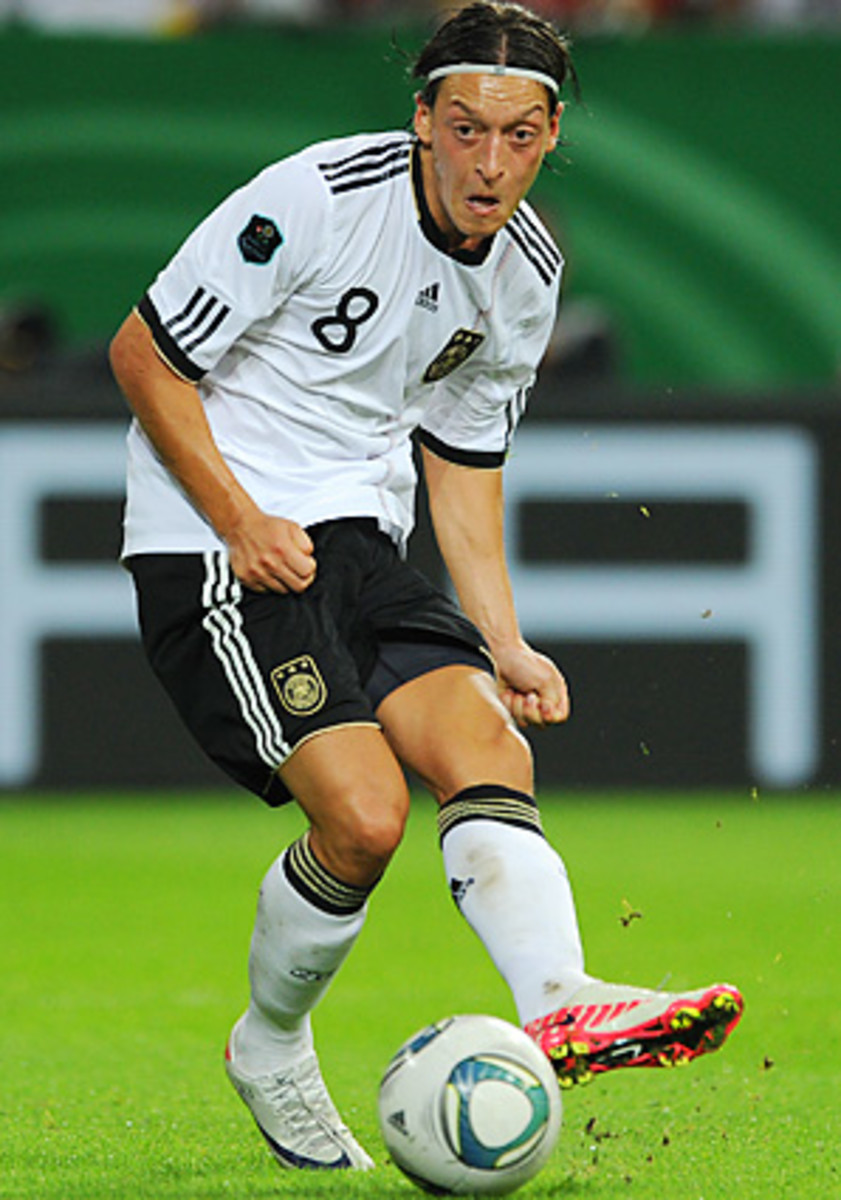
Euro 2012 Preview: Germany
Germany is sending the youngest-ever team to the European Championships, and many experts feel that it could be its best-ever, too. Joachim Löw's side is blessed with genuine talent, from the intimidating Manuel Neuer in goal to prolific Mario Gomez up front. All 10 qualification games were won with ease, and last year there were impressive wins against Brazil (3-2) and the Netherlands (3-0) that brought comparisons with the 1972 European champions who are widely considered Germany's most aesthetically pleasing side.
A tough draw has done little to quell the confidence. "We aspire to win this competition," midfielder Sami Khedira said. To be sure, some doubts remain. The central defense pairing of Holger Badstuber and Mats Hummels have hardly played together. Löw has also had less time than usual to practice with the full squad -- the team might not be as cohesive as in 2010. But these worries are offset by the progress Germany has made since the last World Cup, where it took third. There is much more depth in the squad. Anything but a first international trophy since 1996 in England will be seen as a disappointment back home.
M Mesut Özil
The 23-year-old attacking midfielder is one of the most elegant players in the competition. Özil, the son of Turkish immigrants, makes the complicated look effortless and always treats the ball with care. Two years at Real Madrid have seen him mature to the point where he could be this summer's outstanding performer.
M Bastian Schweinsteiger
Injury, loss of form and the traumatic Champions League final defeat made it a difficult season for Bayern Munich's midfield general, but "a new beginning" with the national team promises to bring out the best of him. Schweinsteiger, 27, dictates the rhythm and tempo of the team and can come up with useful shots from distance to boot.
F Lukas Podolski
An excellent campaign with 1. FC Köln in the Bundesliga earned the Polish-born striker a move to Arsenal. Podolski, who'll turn 27 shortly before the tournament start, will be deployed on the left side of midfield front three, where his shooting prowess, hard running and directness have been real assets in recent competitions.
The striker question
Miroslav Klose or Mario Gomez? On the face of it, it should be a no-brainer: Klose, 33, missed the last two months of the season at Lazio with an injury while the 26-year-old Gomez scored 41 goals in all competitions for Bayern. Klose, however, is still Löw's preferred choice due to his technical skill and positional intelligence. Gomez is not nearly as good when it comes to linking up with midfield and also prone to sudden losses of confidence. If Klose can win his fitness battle, he'll probably start.
The Second Lahm question
Löw has yet to decide whether Philipp Lahm will play on the left or on the right, but the main problem won't be solved, either way: Germany is still in desperate need for a second fullback of the captain's quality. Neither Dortmund's Marcel Schmelzer (left back) nor Schalke's Benedikt Höwedes (right back) have really convinced. Jérôme Boateng, a center back by trade, has the distinct advantage of being able to play either side, too, but he's not an ideal solution, either.
The psychology question
Bayern Munich's Champions League final defeat at the hands of Chelsea was hardly ideal preparation for the tournament. Can the eight Bayern players in Löw's squad recover mentally? And how will a team full of players who are still chasing their first international trophy deal with the pressure that comes with being seen as a favorite alongside Spain?
Löw has experimented with 4-3-3 and 4-1-4-1 systems, but Germany will line up in the customary 4-2-3-1 with Schweinsteiger and Khedira in front of the back four. Khedira will mostly sit deep to protect a defense that is not quite as susceptible as some make out but still the team's weakest department. Lahm, who'll be either deployed as right back or left back, will link up with the attack at any given opportunity, but a lack of true quality on the other side of the back four will make Germany's game inherently lopsided.
Up front, Podolski, Özil and Thomas Müller will look to change positions and to overload in wide areas to create space for the center forward. Germany's best two games at the World Cup -- the 4-0 defeat of Argentina and 4-1 over England -- were largely based on counterattacking, but the team has progressed to the point where it can dominate the play against top sides, too. Pacey, tricky options on the bench -- Marco Reus, Mario Götze, André Schürrle -- should make the side even less predictable.





